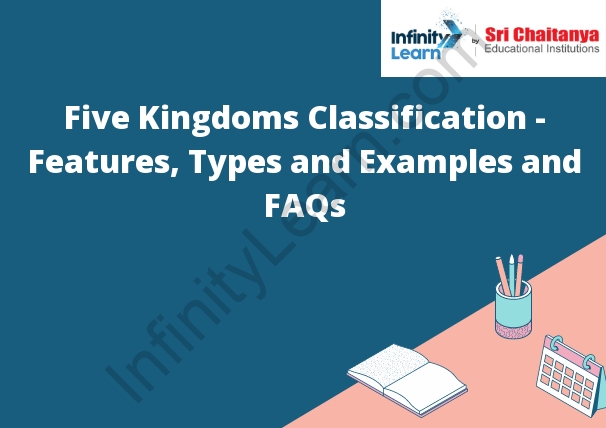Table of Contents
Introduction of Five Kingdoms Classification
The five kingdoms classification of life is a way of organizing living things into groups based on their physical similarities and differences. The five kingdoms are: Monera, Protista, Fungi, Plantae, and Animalia.
Each kingdom is divided into smaller groups, called phyla. The Monera kingdom is divided into two phyla: Bacteria and Archaea. The Protista kingdom is divided into six phyla: Protozoa, Algae, Slime Molds, Water Molds, Fungi Imperfecti, and Chromista. The Fungi kingdom is divided into six phyla: Ascomycota, Basidiomycota, Zygomycota, Chytridiomycota, Glomeromycota, and Myxomycota. The Plantae kingdom is divided into eight phyla: Bryophyta, Pteridophyta, Lycopodiophyta, Sphenopsida, Equisetopsida, Magnoliophyta, Liliopsida, and Caryophyllopsida. The Animalia kingdom is divided into thirty-six phyla: Porifera, Cnidaria, Platyhelminthes, Nematoda, Annelida, Mollusca, Arthropoda, and Echinodermata.

Kingdom Monera
Kingdom Monera is a group of unicellular prokaryotic organisms that includes bacteria and archaea. These organisms are distinguished from other prokaryotes by their lack of a nuclear membrane and their possession of a single chromosome.
Types of Monerans
There are four types of monerans:
1. Bacteria: These are single-celled organisms that lack a nucleus and other organelles. Bacteria are prokaryotes and can be found in a variety of environments, including soil, water, and the human body.
2. Archaea: These are single-celled organisms that lack a nucleus and other organelles. Archaea are prokaryotes and can be found in a variety of environments, including soil, water, and the human body.
3. Protists: These are single-celled organisms that lack a nucleus and other organelles. Protists are eukaryotes and can be found in a variety of environments, including soil, water, and the human body.
4. Fungi: These are single-celled or multicellular organisms that lack a nucleus and other organelles. Fungi are eukaryotes and can be found in a variety of environments, including soil, water, and the human body.
Kingdom Protista
The kingdom Protista is a group of unicellular eukaryotic organisms that are not algae or plants. They are a diverse group of organisms that can be found in a variety of habitats, including water, soil, and air. Protista can be single-celled or multicellular, and they vary in size from microscopic to macroscopic.
Kingdom Fungi
Fungi are a group of organisms that includes mushrooms, molds, and yeasts. Fungi are eukaryotic, meaning their cells have a nucleus and other organelles enclosed within membranes. Their cell walls are made of chitin, a tough carbohydrate.
Fungi are saprophytes, which means they live on dead or decaying matter. They secrete digestive enzymes that break down the organic matter into simple molecules that the fungi can absorb. Fungi can also parasitize other organisms, living off them like a vampire.
Fungi are important in the environment. They recycle nutrients back into the soil, and they play a role in the decay of dead plants and animals. Some fungi are used in the production of food, such as mushrooms, and others are used in the production of beer and wine.
Kingdom Plantae
Kingdom Plantae includes all plants. Green plants use sunlight to convert water and carbon dioxide into simple sugars, such as glucose, and oxygen gas. The simple sugars are used to produce energy and build new plant tissue. Plants are the foundation of the food web, providing food and oxygen for animals.





